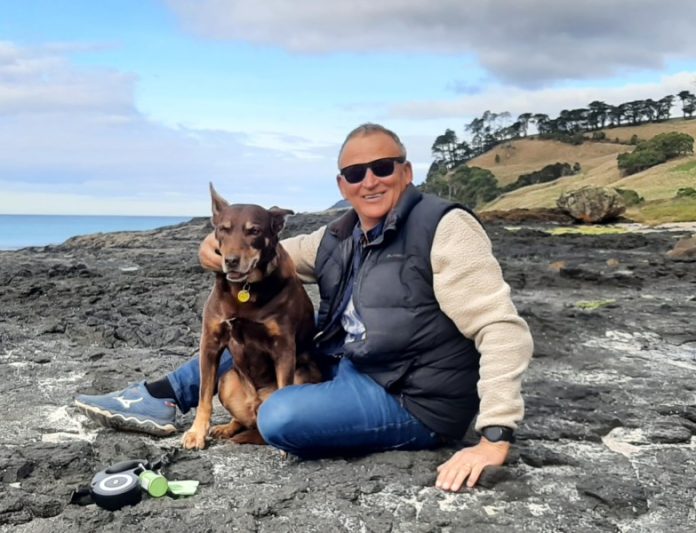John Boomsma, an adventurous and active man, was diagnosed with an advanced and aggressive form of prostate cancer at the age of 60. Two years later he was grappling with a terminal diagnosis.
John, who recently settled in Kyneton with his wife, reached out to the Express in the hope that sharing his story might encourage other men over the age of 50 to get regular prostate cancer blood tests every two years – ones that could save their lives.
Born in Ferntree Gully to migrant parents, John spent his formative years in East Doncaster, where he was bullied and called a ‘clog wog’.
In 1978, after attending university, he embarked on an epic nine-month journey hitchhiking from Australia, through Asia, trekking across the Himalayas and the foothills of Annapurna, through Afghanistan (just as the Russians were invading), Iran and across to his parents’ homeland in Holland.
After spending a few years in Holland working with runaway street kids, John travelled to the US, where he spent a further two years hitchhiking his way around the states.
“I never spent a cent on accommodation or travel costs,” John said. “Often the people who picked me up would put me up, but I had a little tent, and I sometimes slept in railway box cars and under bridges.
“I had a big sign, ‘From Australia, touring the USA’, a lot of truckers were ex-Vietnam Vets and they’d pick me up more often than not,” he said.
“I look back now at the places I went, and the risks I took, and think, ‘I’m lucky to be alive.”
John made his way to Central America and finally, after six years and not a cent to his name, he found himself living in a cave in Hawaii with some local guys, living off passion fruit. However his love for travel never wavered and that has included nine trips to India over the years since then.
On his return to Australia, John went on to have a highly successful management career while also working as a professional photographer, and spending his spare time volunteering as a facilitator with the Cairn Miller Institute.
“That was really where my heart lay, so I decided to get out of the corporate world and try and get into the not-for-profit world. I ended up implementing the NDIS for the largest trial site provider in the country,” he said.
“Then, I got a gig, probably the best I’ve ever had in my career, working with Indigenous communities in Fitzroy Crossing, helping them with federal governance expectations and mentoring business students who were writing business cases for some of the smaller communities, in very remote areas.
“Meanwhile, my cancer had been diagnosed and I was having problems with infections post-op. While I was in the remote town of Wangkatjungka, the life-threatening infection returned and I was flown out by the Royal Flying Doctors.”
John told the Express that he was someone who always had regular medical checks but he knew nothing about prostate-specific antigen testing and prostate cancer.
“I had a couple of health issues, so I went to my doctor and did blood tests. My PSA levels were really high. The doctor did a rectal exam and straight away he said, ‘You’ve got cancer. I can feel it,” John said.
“That was seven years ago. Since then, I’ve had major surgery and two rounds of radiation, chemotherapy and daily debilitating medication.
“Four years ago they told me it’s no longer curable and we can now only contain it for a few years,” he said.
“If I had been tested earlier, the cancer is unlikely to have spread and surgery alone would have cured my cancer.
“I’m still hopeful. Australia has one of the leading research centres for prostate cancer in the world. I had a meeting with my oncologist the other day and there are some new trials I might qualify for. So, who knows?”








